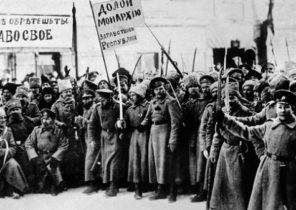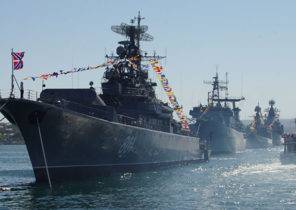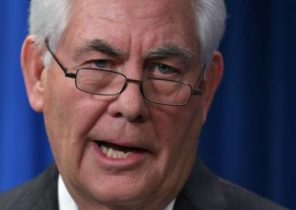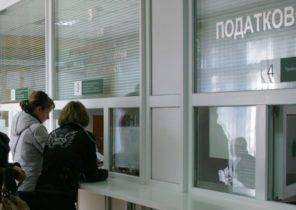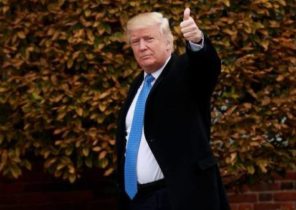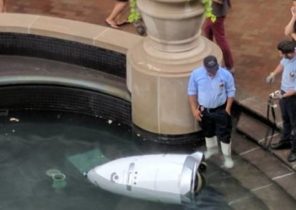
It took more than a year since then, on the Turkish-Syrian border, the Turkish military shot down a Russian su-24 that resulted in the rupture of diplomatic relations between the two countries. Bilateral “ice age” was in a sense a return to historical traditions. Russia and Turkey shared the centuries-old feud, and only in the last decade, countries have begun to converge.
Currently, both countries expressed willingness to cooperate in finding a peaceful solution for Syria. After was shot down by a fighter, the crisis lasted a little more than six months. The heads of state Recep Tayyip Erdogan and Vladimir Putin are friends, even the murder of the Russian Ambassador in Ankara last week, it seems, has not affected their relationship. Turkish-Russian friendship brings favor presidents in many areas.
• Syria: on Wednesday, the Turkish state news Agency Anadolu had reported that Ankara and Moscow have agreed on a ceasefire in the affected by the civil war in Syria. Initially there were no details, Moscow did not want to comment on the reports. According to Reuters, both countries seek to divide Syria into informal zones of influence. These zones will be able to act Autonomous within a Federal structure. According to reports, the Syrian ruler, Bashar al-Assad will remain in power, at least temporarily. Moscow supports the Assad regime, but Ankara wants to eliminate it.
Recently the newly created “constellation” Moscow-Ankara-Tehran has stepped up peace negotiations in Syria. Even the UN envoy to Syria Staffan de Mistura said this as a positive step. In January in Astana (Kazakhstan) scheduled meeting between Russia, Turkey and the Syrian opposition.
However, this planned meeting shows the problems of the new Russian-Turkish axis: terrorists can not invite. Both countries recognize terrorists “Islamic state” (ISIS) (terrorist organization banned in Russia — approx. ed.), Ankara supports the rebels opposing Assad, which Moscow considers terrorists. Ankara, in turn, calls the Kurdish rebels terrorists, which until recently was supported by Moscow. Turkey will also need to negotiate with Iran, although recently the Turkish media reported on the secret negotiations between Tehran and Ankara. In Syria, Iran is on the side of Russia, Turkey with the Islamic Republic rather diplomatic courtesy.
Erdogan and Putin share their aversion to the United States. Turkey is part of the US-led coalition against ISIS, but at every opportunity condemns Washington’s support for Kurdish rebels in Syria. Moscow and Ankara are pinning their hopes on the new President of Donald trump, who does not show much interest in Syria, and may leave this field Erdogan and Putin.
• Message to the EU: Turkish-Russian friendship is also a message to the European Union.
After a bloody coup attempt in July, Ankara protects the country and almost every hour delay of the opposition, journalists, etc. Putin was one of the first who after the coup expressed the sympathy of Erdogan, it will be reckoned to him. After the coup stalled negotiations on accession to the EU. Here come into play Russia and the Shanghai cooperation organization (SCO), which Ankara, at least temporarily, touts as an alternative to the EU. SCO and its members (China, Russia, Uzbekistan, Kazakhstan, Kyrgyzstan and Tajikistan) focused more on politics, security and Economics. Moscow supports the entry of Ankara into the organization. The crisis of Turkey / the EU also in the hands of Putin, because the Russian-European relations reached a low point after the beginning of the crisis in Ukraine. So, Erdogan and Putin want to show that it is not isolated. After the attempted coup, a member of NATO, Turkey is disappointed with the Alliance: the country expected more support. NATO officials recently acknowledged that Ankara’s actions after the coup have consequences for the Alliance. So, more than 150 Turkish troops were forced to leave the NATO base. The Pro-government Turkish Newspapers publish criticism of NATO. And, regarding the issue of NATO-Russia: there prevails the constant saber rattling.
• The economy: While Putin was at an energy conference in Istanbul in October, both countries have done a lot of work. Were agreed upon or returned to life several projects, including the “Turkish stream”. The pipeline will transport Russian gas under the Black sea to Europe that Moscow no longer dependent on Eastern Europe. Financially it will be quite noticeable for Ukraine. Through this pipeline, Turkey will obtain gas at a discount; even today Moscow is the largest supplier of gas to Turkey. In addition, will be intensified Russian-Turkish cooperation in the nuclear power plant Akkuyu in the Turkish province of Mersin. After he was hit by the su-24, Moscow severely restricted travel to Turkey and imposed sanctions, including a ban on imports of citrus. These measures will be cancelled. Currently, the two countries have also discussed simplification of visa regime for citizens.

